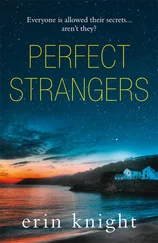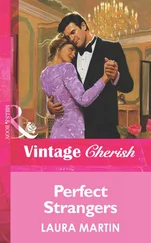So that was it for poor old Jarribong. Goodbye, sad little tidy town.
She put her foot on the accelerator and watched her speed slide back up to one hundred. The website had said that the turnoff was twenty minutes outside of Jarribong.
There was a sign ahead. She narrowed her eyes, hunched over the wheel to read it: Tranquillum House next turn on the left .
Her heart lifted. She’d done it. She’d driven six hours without quite losing her mind. Then her heart sank, because now she was going to have to go through with this thing.
“Turn left in one kilometer,” ordered her GPS.
“I don’t want to turn left in one kilometer,” said Frances dolefully.
She wasn’t even meant to be here, in this season or hemisphere. She was meant to be with her “special friend” Paul Drabble in Santa Barbara, the Californian winter sun warm upon their faces as they visited wineries, restaurants, and museums. She was meant to be spending long lingering afternoons getting to know Paul’s twelve-year-old son, Ari, hearing his dry little chuckle as he taught her how to play some violent PlayStation game he loved. Frances’s friends with kids had laughed and scoffed over that, but she’d been looking forward to learning the game; the story lines sounded really quite rich and complex.
An image came to her of that detective’s earnest young face. He had freckles left over from childhood and he wrote down everything she said in laborious longhand using a scratchy blue ballpoint. His spelling was atrocious. He spelled “tomorrow” with two m’s. He couldn’t meet her eye.
A sudden rush of intense heat enveloped her body at the memory.
Humiliation?
Probably.
Her head swam. She shivered and shook. Her hands were instantly slippery on the steering wheel.
Pull over , she told herself. You need to pull over right now.
She signaled, even though there was no one behind her, and came to a stop on the side of the road. She had the sense to switch on her hazard lights. Sweat poured from her face. Within seconds her shirt was drenched. She pulled at the fabric and smeared back strands of wet hair from her forehead. A cold chill made her shake.
She sneezed, and the act of sneezing caused her back to spasm. The pain was of such truly biblical proportions that she began to laugh as tears streamed down her face. Oh yes, she was losing her mind. She certainly was.
A great wave of unfocused primal rage swept over her. She banged her fist against her car horn over and over, closed her eyes, threw back her head, and screamed in unison with the horn, because she had this cold and this back pain and this broken bloody heart and—
“Hey!”
She opened her eyes and jumped back in her seat.
A man crouched next to her car window, rapping hard on the glass. She saw what must be his car pulled up on the opposite side of the road, with its hazard lights also on.
“You okay?” he shouted. “Do you need help?”
For God’s sake. This was meant to be a private moment of despair. How deeply embarrassing. She pressed the button to lower the window.
A very large, unpleasant, unkempt, unshaven man peered in at her. He wore a T-shirt with the faded emblem of some ancient band over a proud solid beer belly and low-slung blue jeans. He was probably one of those outback serial killers. Even though this wasn’t technically the outback. He was probably on holiday from the outback.
“Got car trouble?” he asked.
“No,” said Frances. She sat up straighter and tried to smile. She ran a hand through her damp hair. “Thank you. I’m fine. The car is fine. Everything is fine.”
“Are you sick ?” said the man. He looked faintly disgusted.
“No,” said Frances. “Not really. Just a bad cold.”
“Maybe you’ve got the proper flu. You look really sick,” said the man. He frowned, and his eyes moved to the back of her car. “And you were screaming and sounding your horn like you … were in trouble.”
“Yes,” said Frances. “Well. I thought I was alone in the middle of nowhere. I was just … having a bad moment.” She tried to keep the resentment from her voice. He was a good citizen who had done the right thing. He’d done what anyone would do.
“Thank you for stopping but I’m fine,” she said nicely, with her sweetest, most placatory smile. One must placate large strange men in the middle of nowhere.
“Okay then.” The man straightened with a groan of effort, his hands on his thighs to give himself leverage, but then he rapped the top of her car with his knuckles and bent down again, suddenly decisive. I’m a man, I know what’s what . “Look, are you too sick to drive? Because if you’re not safe to drive, if you’re a danger to other drivers on the road, I really can’t in good conscience let you—”
Frances sat up straight. For heaven’s sake. “I just had a hot flash,” she snapped.
The man blanched. “Oh!” He studied her. Paused. “I always thought it was a hot flush ,” he said.
“I believe both terms are used,” said Frances. This was her third one. She’d done a lot of reading, spoken to every woman she knew over the age of forty-five, and had a double appointment with her GP, where she had cried, “But no one ever said it was like this!” For now they were monitoring things. She was taking supplements, cutting back on alcohol and spicy foods. Ha ha.
“So you’re okay,” said the man. He looked up and down the highway as if for help.
“I really am perfectly fine,” said Frances. Her back gave a friendly little spasm and she tried not to flinch.
“I didn’t realize that hot flashes—flushes—were so …”
“Dramatic? Well, they’re not for everyone. Just a lucky few.”
“Isn’t there … what’s it called? Hormone-replacement therapy?”
Oh my Lord.
“Can you prescribe me something?” asked Frances brightly.
The man took a little step back from the car, hands up in surrender. “Sorry. It’s just, I think that was what my wife … Anyway, none of my business. If everything is okay, I’ll just be on my way.”
“Great,” said Frances. “Thank you for stopping.”
“No worries.”
He lifted a hand, went to say something else, evidently changed his mind, and walked back toward his car. There were sweat marks on the back of his T-shirt. A mountain of a man. Lucky he decided she wasn’t worth killing and raping. He probably preferred his victims less sweaty.
She watched him start his car and pull out onto the highway. He tipped one finger to his forehead as he drove off.
She waited until his car was a tiny speck in her rearview mirror and then she reached over for the change of clothes she had waiting on the passenger seat ready for this exact situation.
“Menopause?” her eighty-year-old mother had said vaguely, on the phone from the other side of the world, where she now lived blissfully in the South of France. “Oh, I don’t think it gave me too much trouble, darling. I got it all over and done with in a weekend, as I recall. I’m sure you’ll be the same. I never had those hot flushes. I think they’re a myth, to be honest.”
Hmmph , thought Frances as she used a towel to wipe away her mythical sweat.
She thought of texting a photo of her tomato-red face to her group of school friends, some of whom she’d known since kindergarten. Now when they went out to dinner they discussed menopause symptoms with the same avid horror with which they’d once discussed their first periods. Nobody else was getting these over-the-top hot flushes like Frances, so she was taking it for the team. Like everything in life, their reactions to menopause were driven by their personalities: Di said she was in a permanent state of rage and if her gynecologist didn’t agree to a hysterectomy soon she was going to grab the littler fucker by the collar and slam him up against the wall, Monica was embracing the “beautiful intensity” of her emotions, and Natalie was wondering anxiously if it was contributing to her anxiety. They all agreed it was totally typical of their friend Gillian to die so she could get out of menopause and then they cried into their Prosecco.
Читать дальше
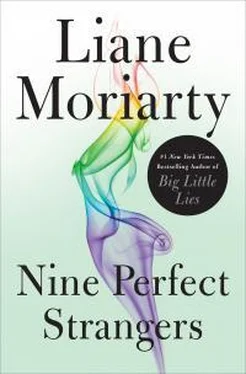
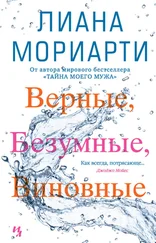

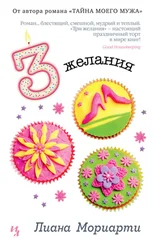

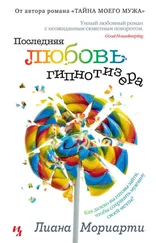
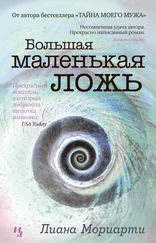
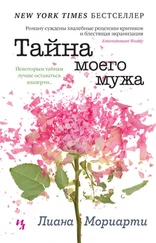
![Лиана Мориарти - Девять совсем незнакомых людей [litres]](/books/414053/liana-moriarti-devyat-sovsem-neznakomyh-lyudej-lit-thumb.webp)

